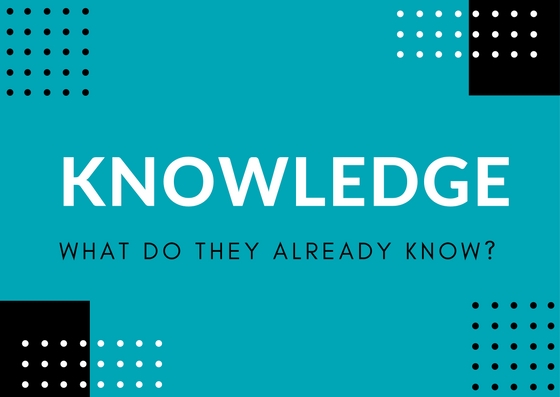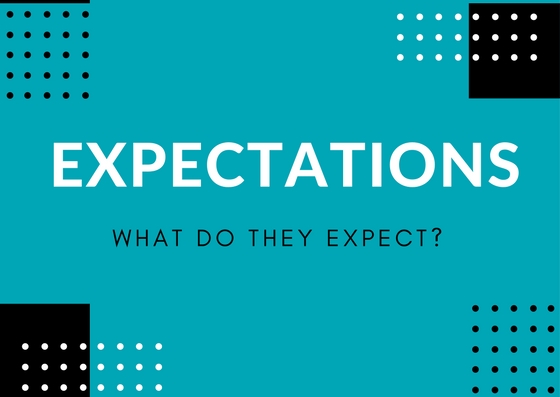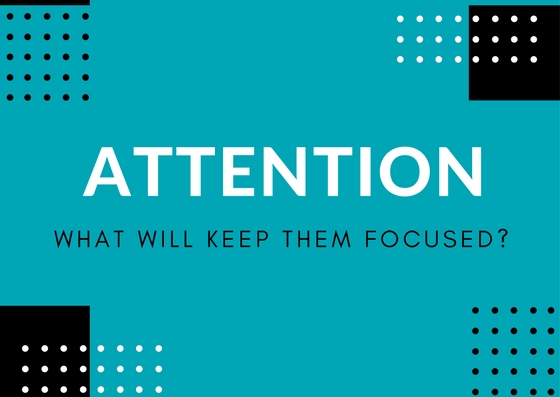Jenni Cargill Strong
Hello, my name is Jenni Cargill-Strong and I’m a professional storyteller and singer and I’ve noticed over the years as I’ve been teaching adults about giving presentations and telling stories how frequently people get very nervous before a presentation.
Firstly, preparation is a really important part of giving a presentation. The better prepared you are the better you are going to feel when you come to the time of standing in front of an audience and so if you are really really nervous then it can be a very good idea to ask a friend to be a coach or a supporter.
Now I’m a raving extrovert. I love performing in front of people and I’m generally very confident when I’m in situations where I know what I’m doing and I’m used to it and I’m experienced. But even I, with all of my years of performance experience and having trained people about exactly how to deal with their nerves, in certain contexts I can get really nervous too and sometimes I’ve needed a coach. For instance when I first auditioned for my agent. I had a friend who came with me and she massaged my shoulders and we did warm ups together and she was there for me like a sports coach would be for you.
So it depends how important this event is. You may be a student about to do an assessment and you can ask a friend who’s also doing an assessment and you can swap support. And sometimes people in fact get so nervous that they can’t even get around to preparing and that’s where a coach can come in if you get together in pairs and you talk through, that can be a lot easier than just putting it off until the last minute and it becomes a self-fulfilling prophesy that you don’t do very well because you haven’t prepared in time.
When you prepare a long way in advance then you’ve got time to really take that information back down into your lizard brain so it becomes almost automatic. You know the difference between when you are learning to drive and you have to think about it and you can’t talk to anyone or do anything else, you just got to concentrate on driving. And then once it becomes automatic and it sinks down into your lizard brain, well you know you can have a chat, listen to music and change buttons. So if you learn the information that you’re going to present so well that it’s quite natural then when the nerves come and you feel all nervous firstly you’ll have the strategies I’m going to talk about and secondly, once you take a deep breath you’ll find that it is there. All that information will kick in if you just trust it. The other part of it is that when you’ve done your preparation then you write it out and try structure it very very clearly. The more clearly your presentation is structured the easier it will be to remember and the easier it will be for your audience to take it in.
So what I recommend is that you create your whole presentation, you write it all out and then you strip it back to the bones, the bare bones and this is something I recommend for people that tell stories too and you might reduce it to three main points. Thinking of the Golden Rule. Or if it’s a little more complicated it may need to be five or it may need to be seven but you need to strip it back to the bare bones and then write it up on the wall, all around the house. You know, maybe over the kitchen sink, put it near your bed, put it next to the loo, put it all over the place so you’re taking it in unconsciously all the time.
Another great trick I was taught by one the uni lecturers is that you write down your notes on palm cards and you go for a walk because there’s something quite different that happens in your memory as you're walking along somehow it really does work that you can take it in and really remember it. So all of those things will help you. Because if you seriously do suffer with nerves and most of us do to some extent, it’s a long continuum, but the majority of people don’t relish the idea of giving a presentation, then the more you need to nurture yourself and look after yourself and prepare for that moment. Because in today’s information age it’s increasingly something more and more of us have to do, we need to give presentations. So if that’s the case for you, if you need to do it as a student, and if you need to do it professionally and sometimes even in a voluntary capacity you may need to give a presentation. Then it makes sense to work on it so that it can be more enjoyable and more successful.
Now I want to just expand on the second key and that is all about letting your nerves become extra volts. I once learned singing from a wonderful English singing teacher called Frankie Armstrong and she said some great things. One of them was ‘if you can talk you can sing, if you can walk you can dance’. That’s an African quote. But the other thing that is pertinent here is that she said ‘let your nerves become extra volts’. Often we tend to think of nerves as something we shouldn’t have. I’m nervous right now but I’m letting it flow through me and letting it help me. So nerves can actually be a very good thing. Nerves really are when the body switches on the adrenal gland and you have adrenal energy rushing through your body and a flight fight response is happening. Now when you’re an athlete you know that that’s a good thing. You know that as an athlete that you need that extra adrenalin so you can run really fast or jump really high. When you give a presentation what adrenalin can help you do is reach the back row. Widen your eyes, be more engaging, be more alert. If you get so frightened that you can’t think straight then you can’t tap into that so I’m going to give you a couple of ways to tap into that energy.
One way is to get very physically grounded. This is very important actually because if you are busy saying ‘I mustn’t be nervous, I mustn’t be nervous’ and you’re trying to stuff it down then there’s this argument happening in your body. But instead what you can do is let it flow through you. Imagine, visualise that you are actually plugging your cable into a big socket of extra energy and it’s going to flow through you. So instead of blocking it and shutting it down and wishing it would go away, which is a bit like trying not to think about a pink elephants, then you got to let it flow through you. So the best way to do that is to really get your body warmed up and it’s a great way to speak actually, is to speak from the feet up. It’s a very different thing to speaking from the neck up. If you start to notice when you listen to people, some people speak from here up (indicates neck) and some people speak from their whole body and that means their heart and their emotions are also involved and when your audience is emotionally engaged with you, they will understand and remember what you say much better.
So it’s a great idea to have a physical warm up and you might even need to do that to loosen you up in preparation for that presentation a long way in advance. But especially on the day of the presentation, if you like doing yoga do a few yoga poses, if you like running do some running if you like belly dancing then shake it out. Whatever works for you.
Then just immediately before the presentation I would suggest that you put your feet hip width apart, like a Tai Chi pose you unlock your knees and you do some deep breathing because deep breathing is scientifically proven to calm the body down. If you have a lot of nervous energy and you want to be able to centre yourself and ground yourself then deep breathing will help.
So you unlock your knees, in fact I could use a few deep breaths myself right now (takes deep breathe) and let it out. With each out breath allow yourself to become more grounded. Allow your shoulders to let go. If you are feeling a lot of tension and you haven’t got a coach to massage you and spoil you then shake it out. Shake out the tension where you can feel it and get the body moving, get the circulation going, get the energy going and then that extra adrenal energy that’s pumping through your body will have somewhere to go and it won’t feel like it’s locked and stuck. That’s not a nice feeling.
It’s also important to warm up your voice and even your face. You might want to do this in a toilet or a private space but in order to engage with people in order to be a little bit expressive instead of you know if you were going to drive your car very fast, well you’d warm it up for a while hopefully first. Get the oil moving and in the same way your body and your face all needs a bit of warming up sometimes to become expressive. So you might do some chewing or some kind of a little massage on your face to get it moving. Do some very strange (makes face movements) you’re going to look strange but that’s okay. Just get yourself warmed up and shaking out. And then humming is a very simple and easy way to warm up your voice because it’s very irritating for people when they can’t hear you. They may be really enjoying your presentation but if they’re straining to hear that can be a bit of a turn off. So humming is a great way to warm up your vocal chords and remind yourself about your voice. So just hum and you could even put your hand on your chest to feel that resonance and that helps you again to be grounded and to get into your body.
(Hums) For more advanced humming you might want to go up and down the scales so you’ve got a bit of vocal variety happening. That’s a little more advanced possibly but if you are comfortable with singing you might happily do that (hums). It’s an easy thing to do and you could also do it if you’re driving to the presentation you can just hum to yourself all the way to the presentation.
So that probably covers as much as I wanted to expand on letting your nerves become extra volts and the third point I wanted to make - so the first point was preparation, the second point was physical warm up to let your nerves become extra volts and the third one is the power of visualisation. And I don’t just say that because I live in the hippy-heartland near Byron Bay in Australia but because visualisation is also scientifically proven to work. You can use visualisation to calm yourself down, you can use visualisation to imagine yourself being very grounded, to be in touch with the earth and for some people that will work. And for some other people you might want a different sort of an image but you can also imagine the presentation going very well.
When I was at drama school our wonderful drama teacher used to lie us down before a show when we were all kind of nervous and worried about you know what would our friends think of the show and will we remember things and will we remember all our props, not that we had many - it was a very minimalist kind of drama - but never the less we had those sort of jitters even though we were looking forward to it as well. And our drama teacher would lie us down on the ground and talk us through a relaxation and then she would just talk us imagining our part in the performance, imagining us, imagine yourself at the stage door about to go on. Imagine you have got all the props that you need. Think about the props that you need there and then.
Imagine yourself walking on stage and feeling good and confident and imagine the performance going well. Imagine everything that you need to imagine to remember and tick off all the things that you have to think about. It’s a psychological rehearsal and apparently even Olympic divers they practice in their mind doing the backflip but they also practice imagining it on top of physically doing it because there is a part of our brain that doesn’t know the difference between actually doing something and psychologically rehearsing it. So it can help with those nerves as well. It’s just walking yourself through it in a positive way. And that can also help calm those horrible voices that come up in your head, which is often a part of what makes us very nervous is the psycho babble that might say 'your presentation is going to be so boring, you’re not going to do well, the audience is not going to like it, you’re going to look foolish'. And so you need a countering voice to that and it might take some time to develop that. Sometimes it takes a bit of practice to work on that, to find a voice that says 'I think I’ve done good preparation, I think it’ll be fine, I think I’ll do really well'.
So I hope that I’ve given you enough tips to help you have some good tools and strategies to deal with that nervous energy and of course it won’t stop you from being nervous but it will help you deal with that nervous energy because if you stopped being nervous you wouldn’t have all those extra volts that will help you reach the back row and be more engaging. So I do hope that you are helped by those keys and enjoy the great journey of being a presenter.





